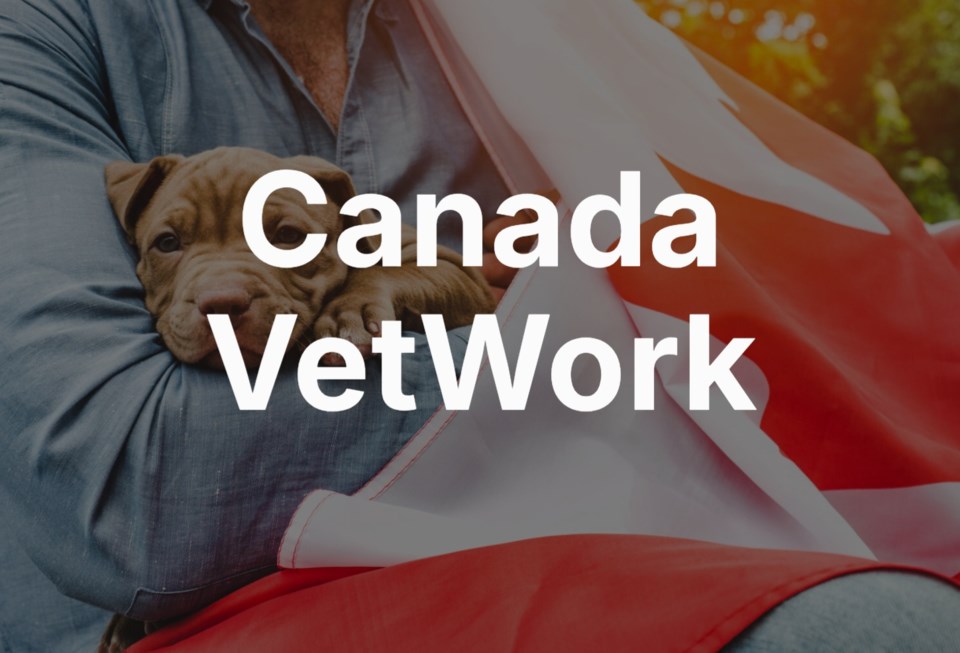ALBERTA – An alarming veterinarian shortage is taking a toll on animal care in Canada, particularly in small rural communities.
Dr. Darlene Donszelmann, a senior instructor of veterinary medicine at the University of Calgary and CEO of Canada VetWork Inc., sees the evidence daily.
“The workforce shortage is far worse in rural remote and northern communities than it is in other areas,” Donszelmann said. “People go where the money is or where the entertainment is or where their family is, which is often in the city and those major communities."
“We know that that has a huge impact on agriculture. It has an impact on livestock. We're tackling Canada with global talent and we're doing it one vet at a time.”
The Canadian Veterinary Medical Association reports demand for veterinarians worldwide rises each year.
Donszelmann started Canada VetWork to connect with international veterinarians and assist in bringing them to Canada to fill the urgent need.
Canada VetWork Inc. holds webinars with practising accredited veterinarians around the globe to find candidates willing to come to Canada, get licensed and then practise in Canada. They also support the candidates through the immigration and Canada licensing for veterinarians.
They started two years ago and have to date have brought 12 accredited veterinarians to Canada, with half of them working in rural and remote north locations. One recent candidate is heading up to the Far North to work. Three others are completing the immigration and licensing process and are considering contracts.
Canada VetWork supports the international vets while they transition into their new roles and get familiar with the community, primarily working with accredited vets because the process is quicker to get them licensed and working.
Candidates who are accredited veterinarians have the American Veterinary Medical Association Council of Education accreditation.
They complete an English or French exam, a language qualification, and have to complete the North American Veterinary Licensing Examination (NAVLE) all-species written exam.This is the same NAVLE exam that Donszelmann had to complete when she graduated.
Accredited candidates can become licensed after successful completion of that exam, and can get through the process in a matter of a few months.
In contrast, non-accredited candidates can require years to become qualified. The very fast non-accredited candidates could complete everything required in a year and a half, but it is time consuming and expensive.
Canada VetWork knows some international universities graduate large numbers of students, but there isn't necessarily the veterinarian system in their countries to offer rewarding careers. For that reason, Canada can be an attractive option.
For example, there have been a number of candidates from Mexico; some of them have been in practice for up to five years. Some even have their own practices.
Families may also come with the vet and look forward to all Canada has to offer. Joy Jenson, Canada VetWork operations manager, works with the candidates and their families and supports them through the immigration and licensing process.
Canada VetWork carries the upfront costs to get candidates through immigration and licensing.
As with other recruiting companies, there is a fee for contracts signed and vets working at Canadian clinics. What sets Canada VetWork apart is there are no upfront costs for the clinic while the candidate is going through the process.
The diligence in bringing high quality veterinarians into the country and trying to fill the urgent need for animal care is the prime motivation.
Donszelmann said bringing high-quality veterinarians into the country helps alleviate some of the shortage and reduces stress on other vets. Having run a clinic herself for many years she knows vets are overworked, often on call 24/7 and often going without days off.
She said there are a lot of mental health issues in theprofession because of long work hours and high client expectations. Many clients expect perfection in 100 per cent of cases and Donszelmann says not all animals are going to live through the medical problems that arise.
Jenson said Canada VetWork has had great success bringing in vets who stay in their roles long-term, with only one person leaving because of a medical emergency.
Their mission is to provide both the candidates and employers with the support and resources necessary to make the hiring process as smooth as possible from beginning to end.
More information is available on their website at canadavetwork.com.



